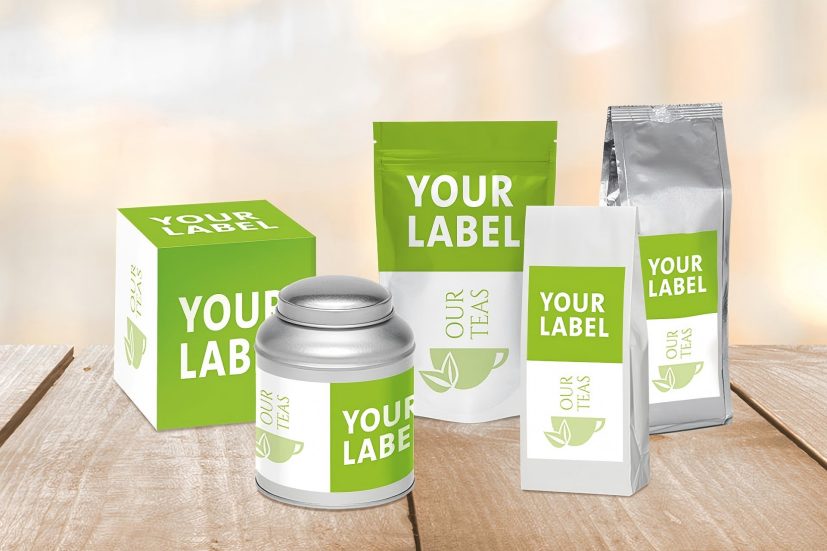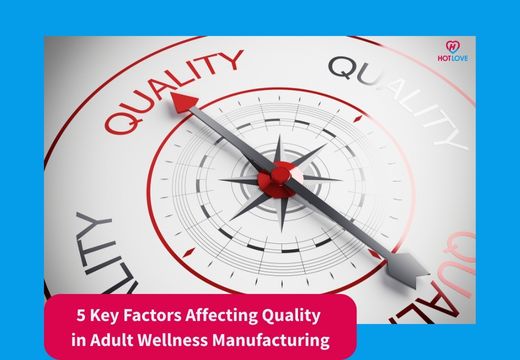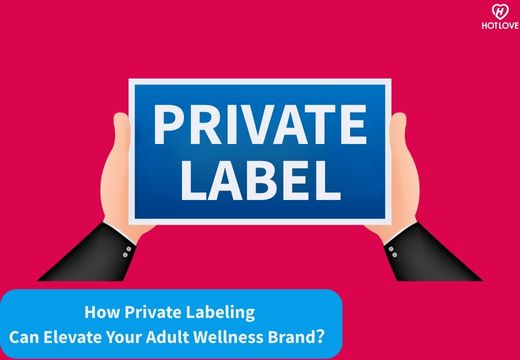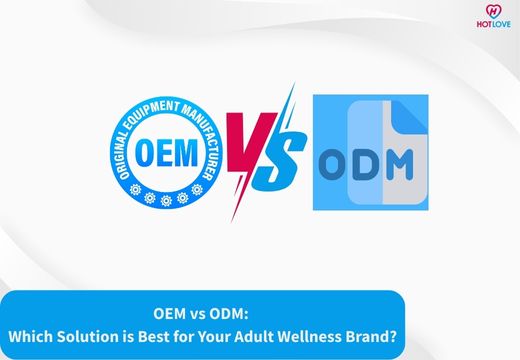How Private Labeling Can Elevate Your Adult Wellness Brand
The global adult wellness industry is booming, with the sex toy market expected to reach $48 billion by 2030. Yet competition is tough, and consumers are demanding innovation, quality and authenticity. In the crowded e-commerce landscape, private labeling provides brands and retailers with a strategic way to differentiate themselves. Partnering with trusted manufacturers, you can produce white-labeled products in your name—without the cost and risk of establishing a factory. Trusted OEMs like Hotlove Industrial, based in Dongguan, China, offer end-to-end private label solutions—helping brands customize vibrators and massagers while ensuring full compliance with global safety standards.

Here’s how private labeling is revolutionizing the industry.
Why Private Labeling is Important
Private labeling allows brands to control product design, packaging, and branding but benefit from the expertise of a manufacturer. Rather than making thousands of the same generic object, you design one-off vibrators, massagers or wellness devices for the people who buy them. This exclusivity rips apart the market saturation, creates customer loyalty, and increases profit margins. Take The Natural Love Company’s private labeling, which used the concept to design eco-friendly vibrators made from recycled ocean plastics for environmentally minded buyers. Even retailers like Costco have successfully launched store-brand lines, showing that private labeling can work even at larger chains.
Benefits You Get from Private Labeling
1. Brand Differentiation
Counter the plethora of lookalike products in the market with private labeling. Tailor designs, materials (such as medical-grade silicone, etc.) and makeup (toth98fq) to the identity of your brand. Your signature product is a luxury vibrator with a sleek design or an ergonomic massager with unique features. Because of this no competition with other brands, you are able to charge more and establish a loyal buyer audience.
2. Cost Efficiency
Opening a factory requires lots of money and time. With private labeling, you make no capital outlays up front. They handle manufacturing, sourcing, and compliance so you can focus on branding and marketing. Unit costs fall and profit margins improve, particularly with economies of scale. Sales for certain brands jump 20–30% after switching to private-label exclusives.
3.Quality Control
Maintenance of quality is important in adult wellness. Private labeling allows you to vet manufacturers for certifications (ISO, CE) and safety standards that may be stricter. You can check batches, request test reports, and indicate body-safe materials. Some brands, such as Doc Johnson, are committed to creating products that meet strict testing protocols, so their private-label partners should, too. A reliable product leads to fewer returns and better trust.
4.Sustainable Without Sacrifice
Eco-conscious consumers now account for 70% of purchases by people willing to pay a premium for ethical products. Private labeling allows you to use recycled plastics, biodegradable components or rechargeable tech. And a brand working with a solar-powered factory to produce solar-charged vibrators can promote itself as both cutting-edge and earth-friendly.
5. Agility in Changing Market continues
Trends change quickly — there are app-controlled toys, pandemic-driven spikes in demand. With private labeling you get speed. Leverage a manufacturer’s existing molds and engineering teams to customize designs or bring new products to market in weeks or months. During COVID-19, brands working with flexible suppliers rapidly refilled empty shelves and produced remote-control toys, taking advantage of exploding demand.

Addressing Industry Pain Points
- Market Saturation: Generic products have difficulty standing out. Private labeling helps in creating a unique identity. A cult brand’s simple, sustainable wand massager can stake its claim beside well-known players.
- Quality Inconsistency: Low-cost imports with faulty wiring or toxic materials ruin reputations. Here, private labeling guarantees that only curated, appropriate products carry your name.
- Supply Chain Delays: It can have visibility with manufacturers with which it works closely. Scale production up or down in peak seasons, or carry out supplier diversification to initiate production at peak seasons.
Success Cases in Real Life
Planet Friendly Brand: A startup worked with an OEM to peddle compostable vibrators. Their shelf space in eco-minded North American retailers grew, as they relied on recycled materials and plant-based packaging.
Retailer Private Label: One European chain even introduced a line of wand massagers under its own name. Grocery store brands, sold for less than premium brands but with equal quality, were top sellers.
Pandemic Agility: A mid-sized brand repurposed its private-label factory to produce couples’ toys at a higher volume during lockdowns. They launched app-controlled models, prompting a revenue jump of 60% in 2020.
How to Start
1. Find the Right Contract Manufacturer: Make sure they are experts in adult wellness, certified, and work with short runs.
2. The Vision: Materials, features, branding, etc. Want a luxury vibe? Specify surgical-grade steel. A budget line? Opt for durable ABS plastic.
3. Concentrate on Marketing: Create compelling stories with exclusive products. Find sustainability, innovation or inclusivity somewhere in your brand that relates to your audiences.
Private Labeling and Its Future
Private labeling will continue its role as a game-changer in the adult wellness market as it expands. It balances innovation with customer needs, allowing brands to ride trends, manage budgets, and develop trust. For boutique brand, retailer, or distributor, private labeling is more than just a strategy—it’s a shortcut to relevance in a dynamic industry.
 Notice on Labor Day Holiday
Notice on Labor Day Holiday
 Five Key Factors Affecting Quality in Adult Wellness Manufacturing
Five Key Factors Affecting Quality in Adult Wellness Manufacturing
 How Private Labeling Can Elevate Your Adult Wellness Brand
How Private Labeling Can Elevate Your Adult Wellness Brand
 OEM vs ODM: Which Solution is Best for Your Adult Wellness Brand?
OEM vs ODM: Which Solution is Best for Your Adult Wellness Brand?

